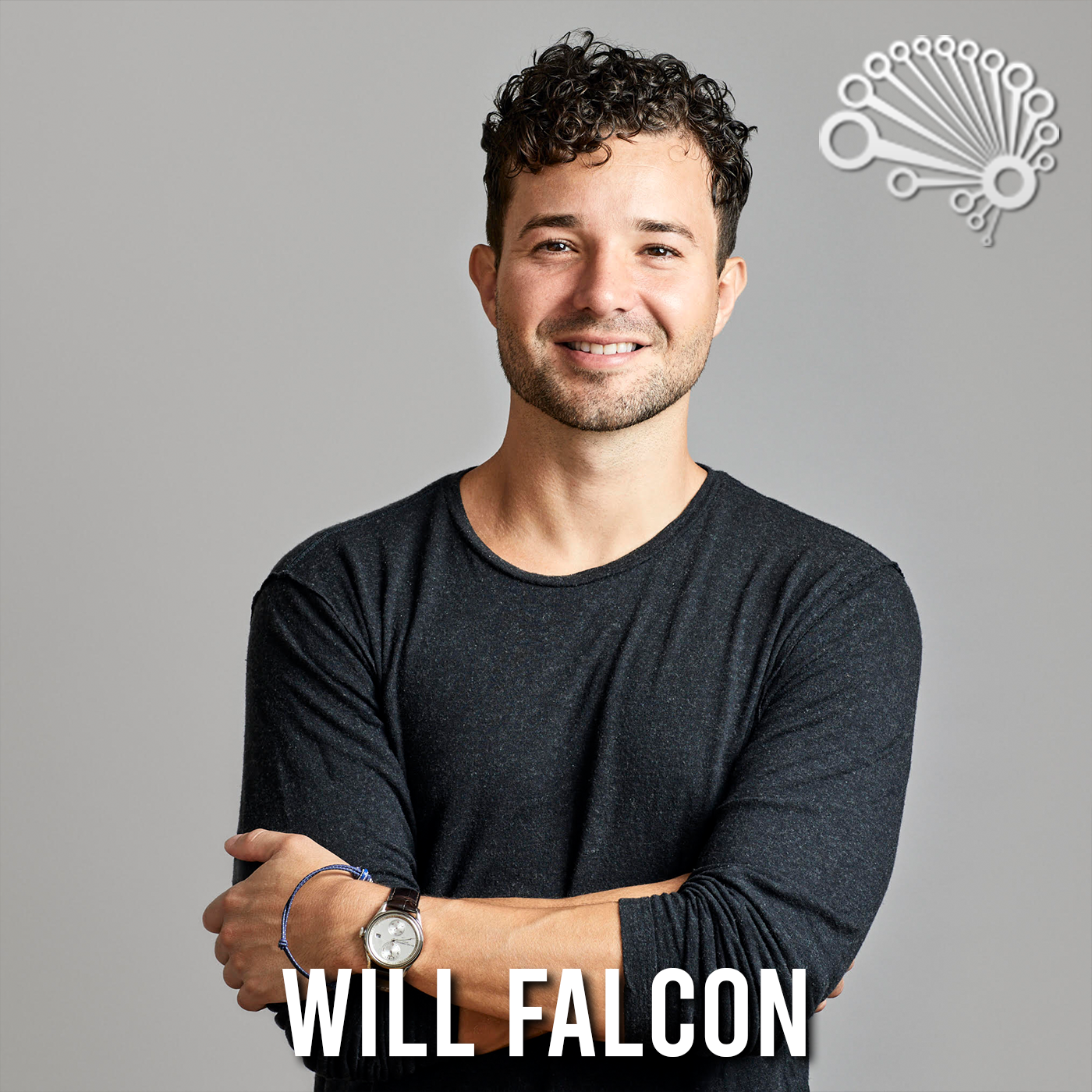Jon Krohn: 00:06
This is episode number 904 on how AI is disrupting the entire advertising industry.
00:17
Welcome back to the SuperDataScience Podcast. I’m your host, Jon Krohn. A few weeks ago in episode 896, I made the case that AI probably isn’t going to take your job anytime soon. AI is however, being quite disruptive as more and more tasks are automated, and there are examples of industries being so disrupted by AI that some folks within the industry need to take note because if they don’t adapt their role, maybe even their whole company could be at risk. To be specific, today’s episode is how AI is disrupting the advertising industry.
00:52
In May, the advertising world wrapped up its annual awards festival in Cannes, in France, and while the champagne was flowing and trophies were being handed out for campaigns, promoting everything from beer to, I’m not making this up, the New Zealand Herpes Foundation, there is an undercurrent of disruption that’s got everyone talking. The industry that prides itself on human creativity is finding itself squarely in the crosshairs of AI.
01:17
Behind the hubbub is Mark Zuckerberg recently promising that brands will soon be able to simply tell Meta what they want to achieve with an ad campaign and how they’re willing to pay, how much they’re willing to pay, and AI will handle the rest. Sam Altman from OpenAI went even further, claiming that 95% of what marketers currently use agencies and creative professionals for will soon be handled by AI almost instantly and at virtually no cost. These are bold claims, but when you look at the data, they might not be that far off.
01:47
Let me share some numbers that really put this in perspective. Global ad spending is growing at about 6% annually and expected to maintain that pace for the next three years, but that growth is becoming highly concentrated. The four largest sellers of ads, Google, Meta, Amazon, and TikTok’s parent company, ByteDance, accounted for more than half the global market last year. Just four companies, four tech companies, accounting for half of the global ad market last year. That’s up from just a third, five years earlier. So also growing quickly. Indeed, eight of the 10 largest ad sellers in the world are now tech firms. At Cannes, these digital giants literally set up a tent city along the beach establishing their dominance in the physical world just as they have done online.
02:33
So how exactly is AI strengthening these companies grip on the advertising industry? It’s happening in three main ways. Let’s go over them. First, machine learning is dramatically improving ad targeting. Meta’s AI-powered Advantage+ system, which I’ve got more info on in the show notes, claims to increase brands’ return on ad spending by 22%. And Google’s Performance Max product, also in the show notes, reportedly raises sales by over 10%. And Google’s experimenting with ads in its AI-powered search mode, which could be even more effective because AI queries are two to three times longer than regular searches, meaning Google ends up knowing not just what you’re looking for, but why you’re looking for it. So that’s the first reason, the first reason why and how AI is strengthening tech giants’ grip on the advertising industry.
03:25
The second one is that AI is revolutionizing how we measure ad effectiveness. There’s a startup called Alembic, for example, that’s using contact tracing algorithms originally developed during Covid to track whether people who see ads actually end up buying the products. As an example, Alembic analyzed billions of rows of data and found that Delta Airlines’ sponsorship of medal ceremonies at last year’s Olympics delivered a better return on investment than any of their other promotions. That level of granular analysis just wasn’t possible before.
03:59
Third reason why the tech companies are strengthening their grip on the ad industry, and this is where it gets especially scary for creative professionals, is that tech firms now believe they can create the ads automatically themselves. TikTok just unveiled AI power tools that generate video commercials from text or photos. Meta recently launched features for automatically personalizing ad copy for different audiences in 10 languages. And as a concrete example, a betting company called Kalshi recently aired a cinematic TV ad made with Google’s AI tools. The Kalshi spot was created in just 48 hours for $2,000 by a director who joked that he got to stay in his underwear for the entire shoot.
04:41
Ad executives, of course, are pushing back, arguing that AI models designed to produce the most likely answer aren’t suited to creating campaigns that truly stand out. And they have a point. In a world where every company can create passable ads with AI, commissioning content that breaks through the noise might become even more valuable. Some ad agencies are already adapting by switching from hourly billing to flat fees to protect their revenue as AI reduces the hours needed to create campaigns.
05:10
Alas, investors at least at this time, aren’t convinced by the ad industry’s arguments. Four of the five big ad agency holding companies have seen their share prices drop since the beginning of last year. In response to these market moves, WPP, one of the big agency holding companies, is looking for a new CEO. Omnicom and Interpublic, two of the others, are planning to merge. Only Publicis has avoided the stock slump, largely by convincing the market that, ah, guess what? They’ve invested enough in AI to be protected.
05:43
Relatedly, as consumers increasingly turn from Google searches to AI chatbots for recommendations, advertisers need to figure out how to ensure their brands are recommended by the likes of ChatGPT, Gemini and other AI assistants. Some companies are already creating promotional material aimed not at humans, but at the large language models, the LLMs, crawling the web for information. A startup called Evertune, for example, analyzes brands’ standing with chatbots by posing tens of thousands of queries. They found that when asked to recommend bedsheets, for example, different AI models have surprisingly different perspectives. Meta’s bots like a brand called Milani, while Casper is popular with most models except Gemini.
06:28
The variations appear to come down to training data. While Google and OpenAI license content from Reddit, Meta’s LLMs lean heavily on its own social media platforms. This means influencing LLMs requires influencing their sources. It involves building a loyal online following, and ironically, brings back the importance of old school public relations. But there are other tricks too. AI models may struggle to read infographics, so these should be converted to text, and AI models love detailed product descriptions that would put most humans to sleep. A lengthy passage about a breakfast cereal’s ingredients might never be read by human eyes, but could convince an AI to recommend it.
07:09
Looking ahead, a lot of talk about AI agents this year. As AI agents are deployed to make buying decisions on our behalf, advertisers will need to figure out how to influence our digital servants. Google recently unveiled a shopping agent that alerts users when prices fall below certain levels, and these kinds of agents may soon have discretion to make more and more complex purchasing decisions. We’re heading toward a future where AI creates ads, targets those ads, and then a blend of humans and agents acting on behalf of humans make buying decisions based on those ads.
07:43
The advertising industry has weathered technological disruption before when dollars flowed from traditional media like newspapers and TV to digital platforms, but this AI revolution feels different because it’s automating the creative process itself, something the industry long considered uniquely human. The rosé will surely keep flowing at advertising award ceremonies and Cannes for years to come, but increasing disruption by AI is also a certainty, and so the advertising industry is in for a wild ride. And even if you’re not in advertising or content creation, what aspects of your role or your business are automatable? What parts of your industry and role are most ripe for AI disruption? Perhaps this is a great opportunity to kick off a conversation with your favorite LLM, Claude, or ChatGPT, to get a handle on the change that’s coming and how you can make the most of it.
08:39
All right, that’s it for today’s episode. I’m Jon Krohn, and you’ve been listening to the SuperDataScience Podcast. If you enjoyed today’s episode or know someone who might, consider sharing this episode with them, leave a review of the show on your favorite podcasting platform, tag me in a LinkedIn post with your thoughts, and obviously subscribe to the show if you aren’t already. The most important thing though is I just hope you’ll keep on listening. Until next time, keep on rocking it out there, and I’m looking forward to enjoying another round of the SuperDataScience Podcast with you very soon.


